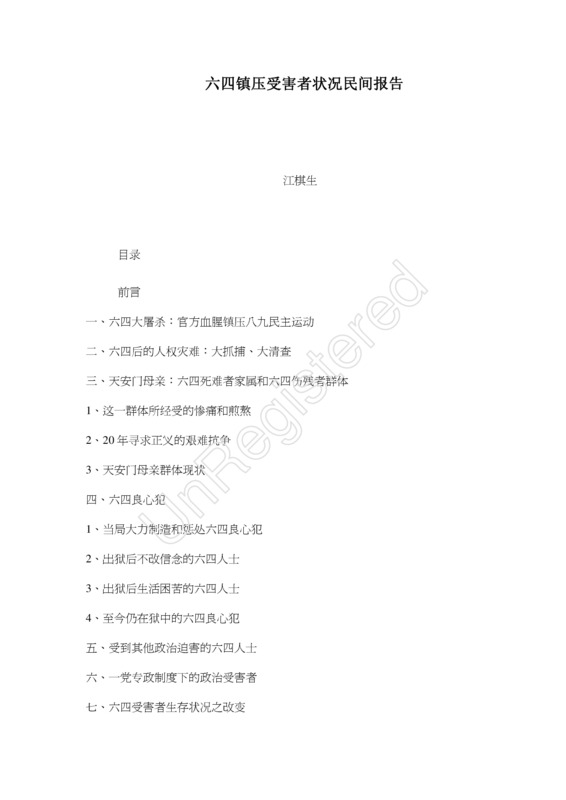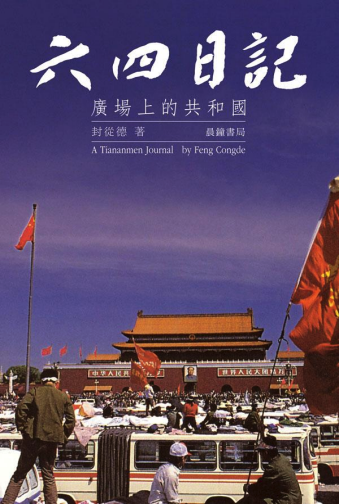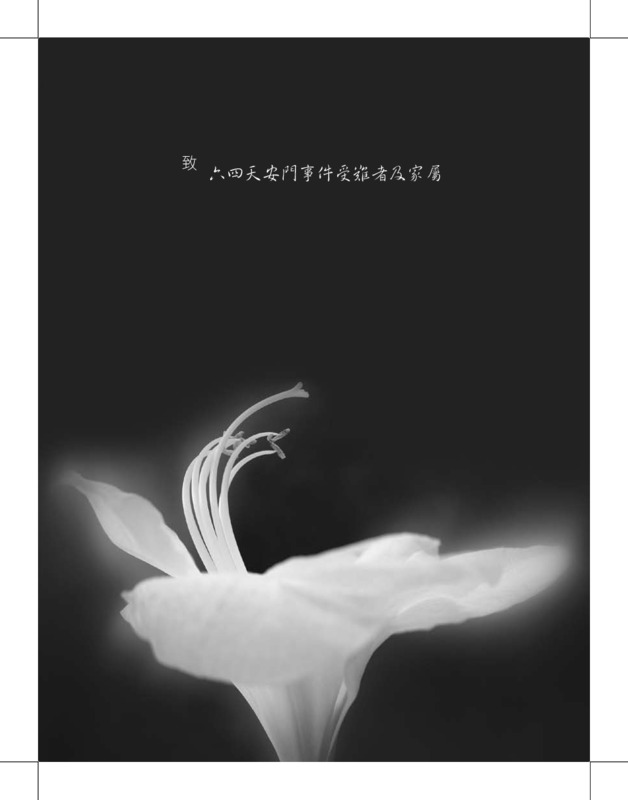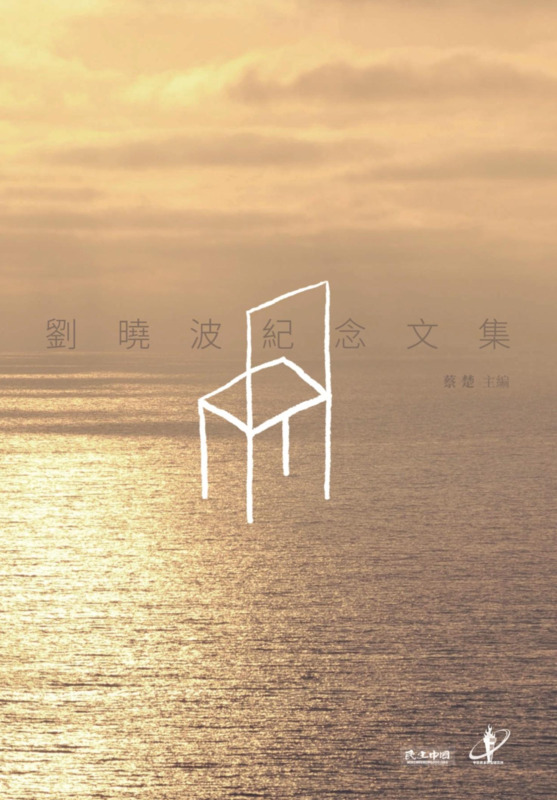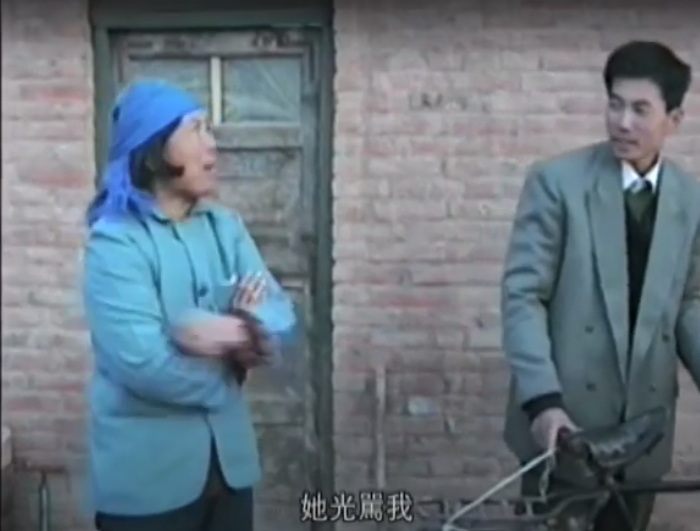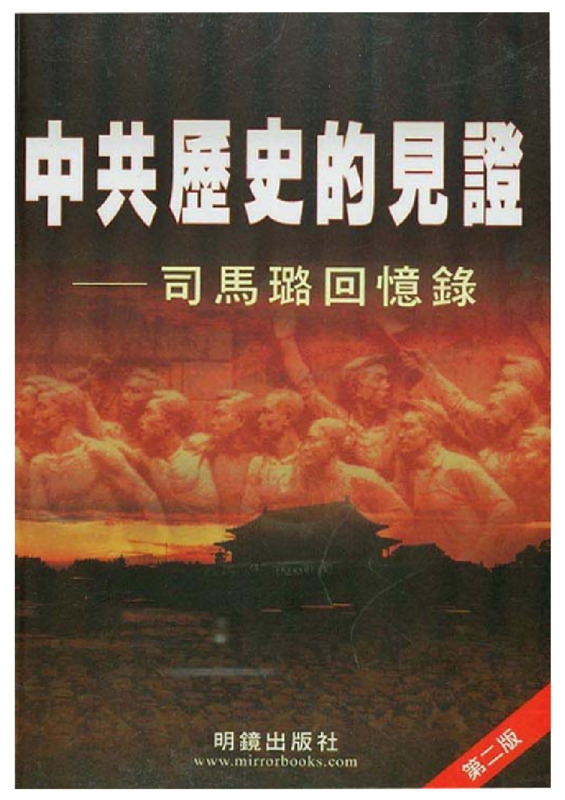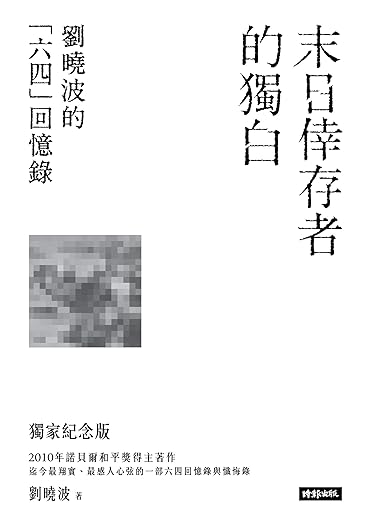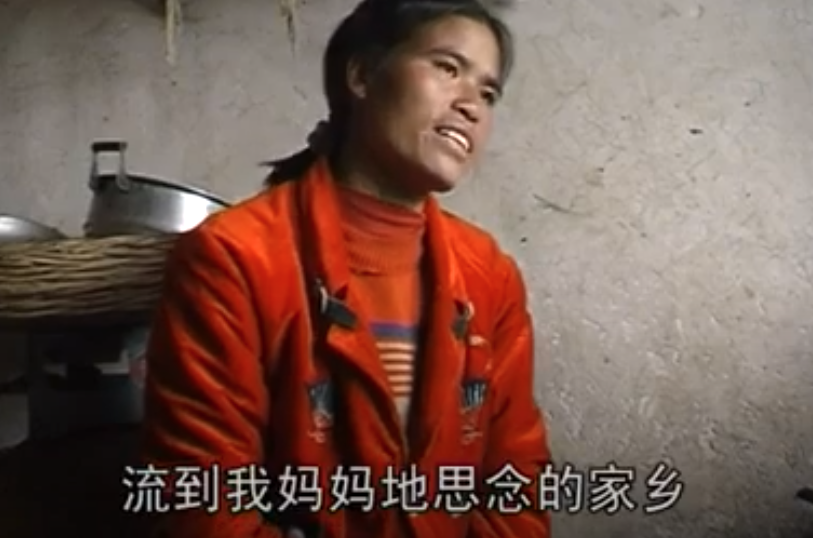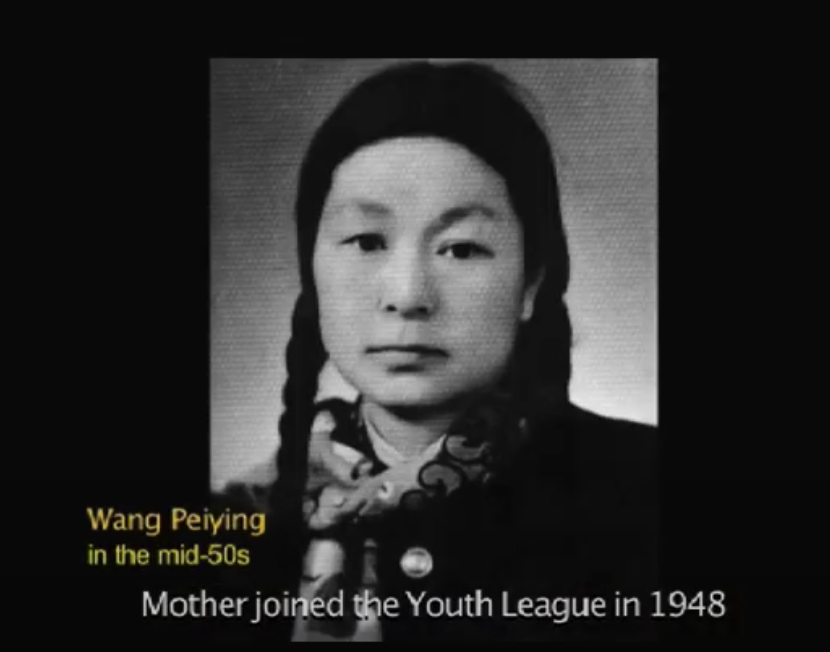Explore the collection
Showing 174 items in the collection
174 items
Book
Inside the bloody clearing of Tiananmen Square
This book is a complete record of the entire process of the forceful clearing of Tiananmen Square in 1989, which began at noon on June 3, 1989, and ended at 10:00 a.m. on June 4th. The author, Wu Renhua, who experienced the June Fourth Incident, describes some of the important events and characters in the book. For example, how Liu Xiaobo, Hou Dejian and other "Four Gentlemen" contacted and negotiated with the PLA martial law forces; how the tanks of the six departments chased and crushed the evacuating students; and how the medical staff put their own lives at risk to save the wounded in the rain of bullets and bullets. The first draft of this book was completed in May 1990, according to Wu Renhua's own account. He fled the mainland in 1992. In May 2007, he published *Inside the Bloody Clearance of Tiananmen Square* in Los Angeles. This was his first monograph on June Fourth. The book has since been updated and reprinted several times.
Article
Jiang Qisheng: Civilian Report on the Situation of June 4 Victims in China
The Tiananmen Square massacre on June 4, 1989 and the subsequent mass arrests and purges created tens of thousands of June Fourth victims. Among them were June Fourth victims who fell into a pool of blood, the June Fourth disabled who were shot, the families of the June Fourth victims and the severely disabled, the June Fourth prisoners of conscience who were sentenced to imprisonment or re-education-through-labor, and the June Fourth victims who were subjected to other political persecution. On the occasion of the 20th anniversary of June Fourth, as part of Chinese civil society's efforts to recover the historical truth and rebuild historical memory, this report gives a basic description of the suffering of the June Fourth victims and their arduous journey over the past 20 years. It also analyzes the systemic factors that have contributed to the victims' suffering and proposes corresponding recommendations on how to change their living conditions.
Book
June 4 Diary: The Republic in the Square
This diary took eighteen years to finalize. Based on a first draft from 1990-1991, it is a complete account of the author's experiences at that time: from his initial participation in the formation of the Preparatory Committee of Beijing University (Beida) to his election as the President of Beida’s Union and as the Deputy Commander-in-Chief of the Forum. It continues up to the time of the evacuation vote by presidency of Forum in the early morning of June 4 and includes other tragic and poignant scenes of history.
Purchase link:https://www.books.com.tw/products/0010436793
Book
June Fourth Poems
"June Fourth Poetry Collection" is a collection of poems about the June Fourth Incident in 1989. The poems were collected and compiled by international experts and scholars in collaboration with activists who participated in the movement and those who lived in exile during the year following the crackdown. The books was published by Boulder Publishing House. Jiang Pinchao, a student leader of the pro-democracy movement in those years, is the chief editor of the collection. It is divided into five parts. The book was not published in mainland China due to seizure by the Chinese government. In May 2007, it was distributed by the June Fourth Cultural Communication Association and Amnesty International at the California Institute of Technology in the United States.
Film and Video
Let the Sunshine Reach the Earth
Wang Lihong is a Beijing netizen, civilian journalist, and public service volunteer. Wang was accused of “picking quarrels and provoking trouble” for supporting three netizens in Fujian. On August 12, 2011, the case was heard for the first time in the Wenyuhe Court of the People's Court of Chaoyang District, Beijing. This film includes interviews with Wang Lihong's relatives, friends, defense lawyers and netizens, and records the historical scene of onlookers in the courts.
Ai Xiaoming’s film “Postcard,” also released in 2011, elaborates Wang Lihong’s activism in broader strokes, while “Let the Sunshine Reach the Earth” focuses on the process of her trial.
This film is in Chinese with Chinese subtitles.
Book
Li Peng's June 4 Diary
"Li Peng's June 4 Diary" was published by Bao Park, the son of Bao Tong, the political secretary of former CCP General Secretary Zhao Ziyang. Based on a manuscript of a diary allegedly kept by Li Peng during the June 4 Tiananmen Square incident, the book was originally scheduled to be published in Hong Kong by New Century Press on June 22, 2010. At the time of the June 4, 1989 Tiananmen Square incident, Li Peng was a member of the Standing Committee of the Political Bureau of the Communist Party of China Central Committee (CCP Central Committee) and the Premier of the State Council. The diary covers the period from April 15, 1989 to June 24, 1989, when Li Peng was a member of the Politburo Standing Committee and Premier of the State Council. Bao Park said that, apart from converting the diary from the original simplified Chinese characters to traditional Chinese characters, "nothing will be added, nothing will be subtracted, and nothing will be changed" in the book. The book was later published in the United States.
Book
Lin Zhao: No Longer Forgotten
This book contains a number of articles in memory of Lin Zhao. It concerns the death of Lin Zhao as well as Lin Zhao's love, pursuits, and disillusionment. This book was published by Changjiang Literature and Art Publishing House in 2000.
Book
Liu Xiaobo Memorial Anthology
This book is a collection of essays in memory of the Nobel Peace Prize winner Liu Xiaobo. It was edited by Cai Chu following his death.
Book
Living Monument in the Square: June 4 Bloodshed through the Eyes of a Hong Kong Woman Reporter
The author of this book was a reporter for "Sing Tao Daily" and was stationed in Beijing at the end of April 1989 to cover the democracy movement. The book is divided into six main parts: Square Facts records the course of the 1989 democracy movement, from the author's visit to Beijing in April to the early morning of June 4, when she and the masses were evacuated from Tiananmen Square. The second part concerns post-hijacking memories, which are some of the author's interviews from 1989. The third part concerns the interviews. The author had interviewed 7 student leaders and intellectuals that year. The leaders told her the reasons why they devoted themselves to the student movement. The fourth part is about the rest of the author's life, from June 4 to December 1990. The author has recorded some fragments of her speeches to the secondary school students in Hong Kong. Some of them are sentimental, some of them are confessional, and all of them are sincere and heartfelt. The fifth part is "Twenty Years of Wounds," which is a reminiscence written by the author on the 20th anniversary of June Fourth. The sixth part is about the grassroots of June 4. These grassroots actors have been pretty much forgotten. The author wanted to write a biography of the grassroots of June 4 in order to fill in gaps in history.
Book
Major Events, Tiananmen 1989
The author was a key member of the 1989 pro-democracy movement when he was teaching at the Chinese University of Political Science and Law. After the June 4 massacre, he went into exile. Currently, he has settled in Taiwan, where he teaches a course on the truth of the June Fourth Incident at Soochow University and National Chung Cheng University. Wu Renhua has published several books related to the June Fourth Incident. With a master's degree in Classical Literature from Peking University, he has written a book on June 4 that emphasizes the reliability of the sources of information. This book records the major events that happened every day during the June 4 period (April 15th to June 9th).
Book
Mao: The Unknown Story
This book presents the dramatic life of Mao Zedong, revealing a wealth of unheard-of facts: why Mao joined the Communist Party, how he came to sit at the top of the Chinese Communist Party, and how he seized China step by step. Writers Jung Chang and her husband Jon Halliday took ten years to complete this book, interviewing hundreds of Mao's relatives and friends, Chinese and foreign informants and witnesses who worked and interacted with Mao as well as dignitaries from various countries.
Purchase link:https://www.amazon.com/Mao-Story-Jung-Chang/dp/0679746323.
Film and Video
Matchmaker, The
The tradition of matchmaking is still prevalent in northern rural areas today. This film records the story of Yang Xiuting, a matchmaker living in Guan County, Shandong Province. It describes how, due to economic reforms, rural people went to cities to find work. Subsequently, young people began to choose their own spouses. Thus, the ancient profession of matchmaker not only faces challenges, but also encounters new problems.
Book
Memoirs of Sima Lu: A Witness to the History of the Chinese Communist Party, The
Sima Lu (1919-2021) was an expert on the history of the Chinese Communist Party. He joined the Chinese Communist Party in 1937, then was politically persecuted in Yan'an, left it, and was expelled from the Party in 1941. In 1952, Sima Lu published “Eighteen Years of Struggle” in Hong Kong, writing about his tortuous journey from defecting to the Communist Party to his awakening and eventual choice of freedom. It became a sensation. He has made in-depth special studies on several leading figures of the CCP, such as Qu Qubai and Zhang Guotao. His memoir, “Witness to the History of the CCP”, is divided into three chapters according to its contents: the first is about his personal experience, the second about the first generation of CCP figures, and the third is devoted to the struggle between Mao Zedong and Zhou Enlai.
Film and Video
Memory of Lin Zhao
Independent director Tiger Temple began shooting this film in 2010 and completed it in 2012, with subsequent revisions. The film features interviews with Lin Zhao's former lover Gan Cui as well as interviews with several independent scholars such as Qian Liqun and Cui Weiping. It is a powerful addition to Lin Zhao's memory. This film was selected as one of the top 20 finalists in the 2012 Sunshine Chinese Documentary Awards.
Book
Monologue of a Doomsday Survivor: About Me and June 4
购书链接:https://www.kobo.com/hk/zh/ebook/ZoerWPfG8TiqoXIYwvW2iw。
Film and Video
Mountain Songs from the Plains
Luo Xiaojia, a young Yunnan Yi girl was trafficked to the plains of Shandong at the age of 17 and forced to marry a young farmer in the area. The film documents her family life in the unfamiliar Shandong countryside and her longing for home. In her tenth year in Shandong, she finally fights for the opportunity to return home. After a 4,000-kilometer journey, she returns to her hometown of Yunnan and sees her mother, whom she misses day and night. However, she struggles with conflicting emotions, and returns to Shandong with a mountain song that her mother sings for her. This movie reflects the sad fate of trafficked women in China and the social psychology that follows these tragedies.
Article
My Life: China's Direction
When the Cultural Revolution broke out, Yang Xiaokai was a senior high school student at No. 1 Middle School in Changsha. On January 12, 1968, he published an article entitled "Where is China Going?" which systematically put forward the ideas of the "ultra-leftist" Red Guards, criticized the privileged bureaucratic class in China, and advocated for the establishment of a Chinese People's Commune based on the principles of the Paris Commune. Yang Xiaokai recalled that his parents were beaten because they sympathized with Liu Shaoqi's and Peng Dehuai's views, and that he was discriminated against at school and could not join the Red Guards. As a result, he joined the rebel faction to oppose the theory of descent. Yang Xiaokai was later sentenced to 10 years' imprisonment for this article. Yang Xiaokai died in 2004. This article is a retrospective of his life.
Book
My Mother :Gao Yaojie
Author Eva writes about her relationship with Gao Yaojie, a Chinese doctor. Dr. Gao Yaojie, who was severely repressed by the Chinese government for exposing the mass infection of Chinese farmers in Henan Province, China, by selling their blood, had no choice but to leave China at the age of 78 and go into exile in the United States. The dissemination of her story is strictly forbidden in China. In this book, author Eva describes Gao Yaojie's noble heart, her story, and her experiences.
Film and Video
My Mother Wang Peiying
On January 27, 1970, Wang Peiying, a cleaner at a kindergarten in Beijing, was sentenced for counter-revolutionary crimes at a 100,000-person public trial held at the Workers' Stadium in Beijing. She was then taken to the execution ground along with a dozen other political prisoners to be executed by firing squad. Wang Peiying was strangled to death in the torture wagon because she preferred to die rather than give in and shout slogans. Forty years later, her daughter, Kexin, began to search for her mother's story. Through her mother's coworkers, friends in distress, and the task force, she gradually discovers her mother's experience as an active counterrevolutionary. In order to protect her conscience, Wang Peiying chose to stand up for her dignity and freedom to tell the truth, and willingly endured brutal torture. The documentary reflects the brutality of the Cultural Revolution and the destruction of humanity.
Book
My Western Region, Your Eastern Land
The first edition of this book was published two years before the landmark event on July 5 in Urumqi from which the ethnic problems in Xinjiang erupted. The "July 5 Incident" was an ethnic vendetta in Urumqi that resulted in thousands of deaths and injuries. It has been regarded as a turning point in the all-out hostility between Uyghurs and Han Chinese and in the shift of Xinjiang's governance from economic development to political high-handedness. The book is thus considered prescient and ahead of its time. Before writing the book, Wang Lixiong had been imprisoned for more than 40 days on the charge of "stealing secret state documents." But this imprisonment brought him a great reward: he was to meet Muhtar, an ethnic Uyghur who was also a political prisoner. "It was because of Muhtar that the book took on a new perspective," says Wang Lixiong. Xinjiang is no longer a symbol in documents, books and materials, but has real flesh and blood, emotions, and even body heat.

